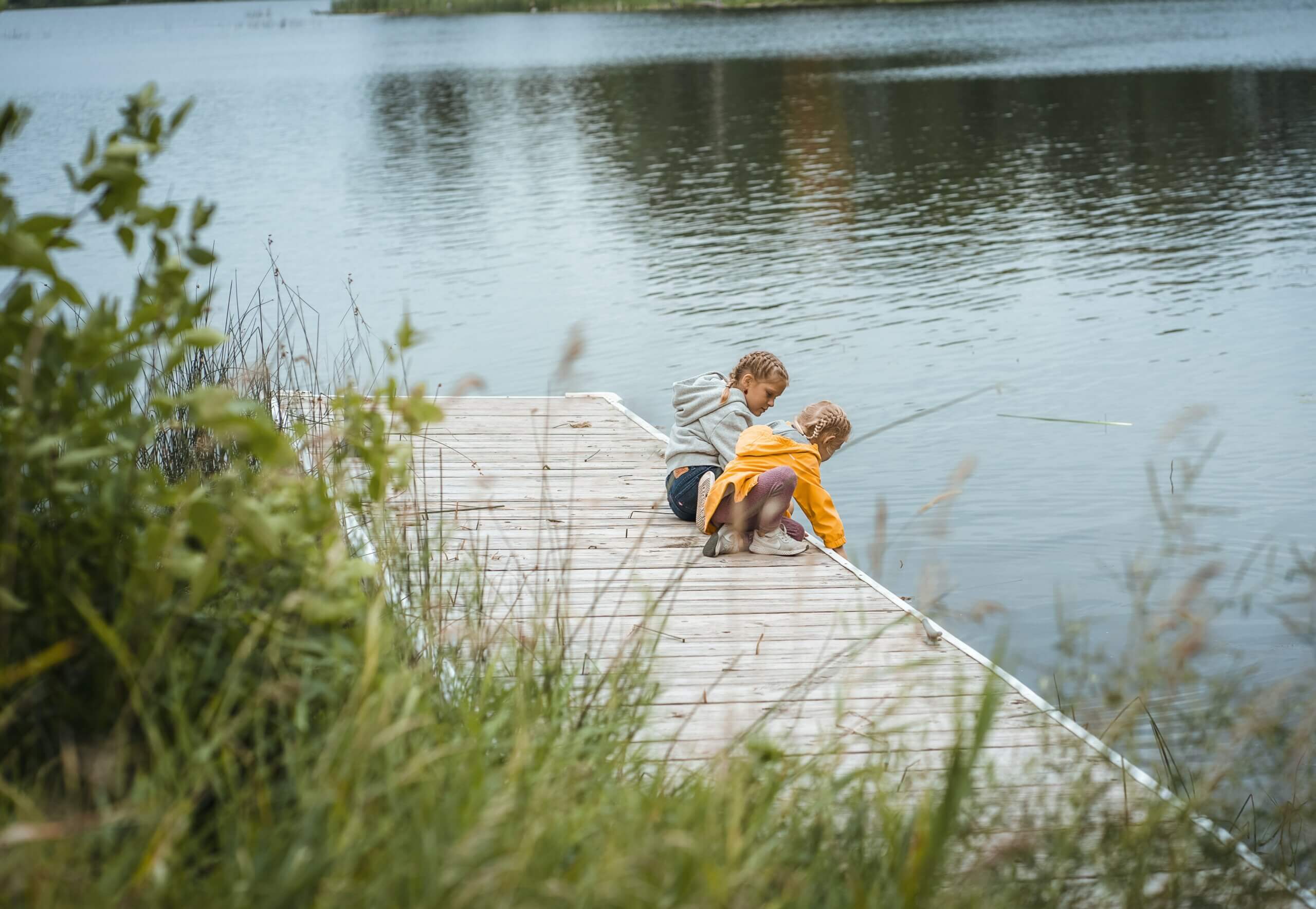Childhood is an important phase in our lives, during which we learn, grow, and build memories that last a lifetime. Unfortunately, for some people, childhood is defined by traumatic experiences that have a lasting influence on their mental health as adults.
Understanding how childhood trauma affects mental health is critical for increasing understanding, empathy, and support for people who have been through such situations.

Signs and Symptoms of childhood trauma
1. Physical Symptoms
Child trauma may have an important impact on an individual’s health, and the signs and symptoms can appear in a variety of ways.
The existence of bodily symptoms that might suggest an ongoing impact of previous traumatic experiences is an essential factor to examine.
The following are some important signs of childhood trauma:
Unexplained Aches and Pains
Traumatised children commonly complain of bodily discomfort that has no evident medical basis.
Frequent headaches, stomachaches, muscular pains, or overall physical pain are examples.
It is important to look at the basic emotional causes that may be causing these physical symptoms.
Sleep Disorders
Trauma may disturb normal sleep patterns, causing difficulty falling or staying asleep, as well as frequent nightmares or terrors at night.
Children who have experienced trauma may develop insomnia, restless sleep, or a fear of falling asleep as a result of repeating upsetting nightmares connected to their traumatic experiences.
Heightened Sensitivity to Physical interaction
Some traumatised children might show greater reactivity to touch or touching. When suddenly touched, they may recoil or react negatively, get nervous in crowded places, or avoid closeness entirely.
These reactions may be the result of incidents of trauma in the past that have formed their sense of touch as dangerous or unsafe.
Appetite and Eating Habits Change
Child trauma may have an important impact on a child’s appetite and eating habits. Some people may suffer a decrease in appetite, which may result in weight loss or poor nutrition.
Others, on the other hand, may use food as a comfort method, leading to weight gain or disordered eating behaviours.
Extreme changes in eating patterns may indicate deep mental health issues. For more information about diet changes, I’d highly recommend you read Diet and Nutrition: 10 Incredible Ways to enhance your eating habits.
Delayed Developmental Milestones
Children who have experienced trauma may experience developmental goal delays. Speech and language, motor skills, and mental abilities are all affected by these delays.
Traumatic events may affect a kid’s capacity to concentrate, learn, and interact with others, making it harder for the child to achieve age-appropriate goals.
It is important to point out that the appearance of these physical symptoms does not always indicate the presence of childhood trauma, since they can also be caused by other reasons.
If you feel that a kid has been traumatised, you must get professional support from a skilled mental health practitioner who specialises in trauma-informed care.
We can better help and fight for children who have experienced childhood trauma if we understand and recognise the physical indications.
Providing a secure and caring environment, along with appropriate therapy, may clear the path for healing, resilience, and general well-being.
2. Emotional symptoms
Childhood trauma can have an ongoing effect on a person’s emotional well-being and mental health.
Recognising and handling the impact of childhood trauma requires an understanding of the emotional symptoms related to prior incidents of trauma.
Here are some important emotional signs that could be related to childhood trauma:
Intense Fear and Worry
Traumatised children usually keep a sense of fear and worry that might continue into adulthood. They might show greater awareness, a continual sense of danger, and excessive worry for their own or loved ones’ safety.
These people may have issues trusting others and may be continuously on alert for risk or danger.
Excessive sadness and Depression
Childhood trauma can result in emotions of sadness, emptiness, and hopelessness that face. People may feel deeply depressed and fight with poor self-esteem.
They may find it difficult to feel pleasure or take part in things they before enjoyed. Depression may have an important impact on their everyday activities as well as their overall quality of life.
Emotional Numbness and Detachment
Some people gain emotional numbing or detachment in an attempt to deal with the overwhelming feelings related to trauma.
They could feel distant from their own feelings or find it difficult to connect with others.
This emotional distance can act as a protective strategy, but it can also make it difficult for them to participate in healthy relationships.
Heightened Emotional Reactivity
Childhood trauma can result in heightened emotional reactivity, causing people to experience strong and unexpected feelings.
They may experience periods of anger, difficulties controlling their emotions, or be overcome by very little motivation.
This emotional instability may destroy relationships and make it difficult for them to successfully manage their own emotions.
Chronic Shame and Guilt
Children who suffered trauma might carry around emotions of shame and guilt, believing that they are somehow to blame for the painful experiences they have faced.
These people may bear a great load of self-blame, resulting in a low feeling of self-worth and self-compassion. Overcoming shame and guilt is a critical stage in the healing process.
It’s important to realise that emotional symptoms differ from person to person, and not everyone will show the same signals. Furthermore, it is important to remember that these symptoms can possibly suggest other mental health issues.
If you feel that a kid or person is suffering emotional symptoms associated with trauma, it is essential to get professional help from a trauma-informed mental health specialist.
3. Cognitive Symptoms
Child trauma may have a major effect on cognitive functioning, affecting how people think, feel, and absorb information.
Identifying and handling the effects of childhood trauma requires an understanding of the cognitive symptoms linked with before traumatic events.
Here are a few important cognitive signs that may point to the presence of childhood trauma:
Difficulty Concentrating and Memory Issues
Traumatised children may struggle with concentration and memory. They may struggle to focus on activities or remember information, which could affect their academic performance and general learning ability.
These cognitive difficulties might last until adulthood, affecting many parts of their everyday lives.
Negative Self-Concept and Low Self-Esteem
Child trauma can have an enormous impact on how people view themselves. They may form poor self-perceptions, considering themselves worthless, unlovable, or naturally imperfect.
These distorted self-perceptions can lead to poor self-esteem and a lack of confidence in one’s talents, making it difficult for them to achieve their full abilities.
Distorted Thinking Patterns
Experiences with trauma can result in incorrect thinking patterns and ideas about oneself, others, and the world.
People may form negative mental structures, such as believing that the world is hazardous or that they have little control over their surroundings.
These cognitive distortions may continue a negative thinking cycle and have an influence on their general attitude toward life.
Hypervigilance and Constant Threat Evaluating
Traumatised children can develop a vigilant attitude, constantly monitoring their environment for possible dangers.
This cognitive reaction is a survival strategy that has already helped them in managing dangerous circumstances.
It can, however, cause constant worry, an inability to relax, and problems trusting others.
Problem-Solving and Decision-Making Difficulties
Childhood trauma may limit a person’s ability to problem-solve and make successful decisions.
They may struggle to analyse circumstances, evaluate different options, and predict expected results.
These cognitive difficulties can make it difficult for individuals to handle complicated circumstances and may affect their general problem-solving abilities.
4. Behavioural Symptoms
Childhood trauma may have an important impact on a person’s behaviour, changing how they interact with others and manage the world around them.
Identifying and handling the effects of childhood trauma needs an understanding of the behavioural signs related to previous incidents of trauma.
The following are some significant behavioural indicators of childhood trauma:
Hyperarousal and Hypervigilance
People who suffered trauma can experience excitement, which is defined by a sudden and continuous feeling of increased consciousness.
They may be continuously on edge, easily frightened, and find it difficult to relax.
This heightened alertness arises from a strong desire to protect oneself since they have previously experienced a lack of protection.
Aggression and Impulsivity
Childhood adolescent trauma can show up as aggressive or impulsive behaviour.
People may find it difficult to control their anger and might act out emotionally or violently.
Impulsivity may also be present, leading to rash decisions or dangerous behaviour as a means of coping with emotional suffering.
Withdrawal and Social Isolation
Traumatic experiences might cause people to disconnect from social connections and isolate themselves.
They may struggle to build and maintain relationships because they lack trust or are afraid of getting harmed again.
This social disengagement may worsen feelings of loneliness and have a negative influence on their emotional well-being.
Self-Destructive Behaviours
People may engage in self-destructive behaviours in an attempt to deal with the mental health issues associated with trauma.
Self-harm, substance misuse, or engaging in dangerous activities that put at risk their safety are all examples of this.
These behaviours may give a brief distraction from their inner turmoil, but they might have long-term negative consequences.
Control Issues and Perfectionism
Child trauma can lead to a strong need for control as people try to recover a sense of safety and stability.
They may have perfectionistic preferences, wanting control over their surroundings and reaching for impossible goals.
The desire for control may have an influence on relationships and increase tension and strain.
Causes of Childhood Trauma
Child trauma can have a variety of reasons, and understanding the root causes is essential in understanding the traumatic experiences which shape a child’s life.
The following are some of the most common causes of childhood trauma.
Home Environment
A child’s growth is greatly influenced by his or her home environment, and when it becomes dysfunctional, it can contribute to trauma.
Parental addiction to substances, domestic violence, parental mental health issues, or chronic conflict within the family can all contribute to an emotionally dangerous environment for children.
Abuse or Neglect
Physical or emotional abuse and neglect are primary causes of childhood trauma.
These actions damage a child’s feeling of security, trust, and well-being.
They can occur inside the family, in school settings, or in other authority interactions.
Abuse and neglect can have serious and lasting effects.
Natural Disasters
Natural disasters, such as earthquakes, floods, storms, or wildfires, may be extremely stressful for children.
The sudden change in the environment, the loss of goods, the separation from loved ones, or seeing the damage can cause significant psychological distress and trauma.
Disasters caused by nature frequently require specific support and rebuilding efforts.
Traumatic Events
A wide range of situations that might have a long-term influence on a child’s life are known as traumatic events.
Accidents, violence in communities, bullying, watching or experiencing violence, or the unexpected death of a loved one are examples of such situations.
Traumatic experiences can range in intensity and duration, but they all have a chance to damage a child’s sense of safety and well-being.
Effects of childhood trauma
Child trauma may have long-term effects on people, changing their ability to think, and emotional well-being, and even leading to dependence on substances.
Trauma can cause mental disorders such as difficulty thinking, learning, and remembering, which can last into adulthood and affect many aspects of life.
Depression, characterised by feelings of sadness and hopelessness, and anxiety, defined by extreme worry and fear, are common effects of childhood trauma and can have an important impact on daily activities.
People who have suffered trauma are also more likely to develop substance misuse problems as a kind of self-treatment.
Identifying and treating the effects of childhood trauma is essential in giving those who need support, treatments, and resources to help them heal, recover, and rebuild their lives.
Treatment options for childhood trauma
There are various effective methods for supporting healing and recovery in the treatment of childhood trauma.
Cognitive-behavioural therapy (CBT) teaches people how their ideas, feelings, and behaviour are linked and provides them tools to fight detrimental thought patterns.
Techniques of desensitisation & reprocessing, such as Eye Movement Desensitisation and Reconditioning (EMDR), can assist individuals in processing and releasing the unpleasant feelings associated with traumatic experiences.
Meditation and mindfulness practices educate people to concentrate on the present moment, which promotes unwinding, self-awareness, and emotional management.
Toys, games, and creative activities used in play therapy help children to express what they are feeling and experiencing in a safe and supportive atmosphere.
Remember, everyone’s healing process is unique, and finding the right combination of therapies and support is essential for each individual’s recovery.
Conclusion
Childhood trauma can have profound effects, but there is hope for rehabilitation and healing.
Individuals can begin the healing and resilience process by acknowledging the effects of trauma and seeking suitable remedies such as cognitive-behavioural therapy, desensitisation and refurbishment, meditation, and play therapy.
It is vital to work with trauma-in workers who offer a safe and supportive environment for one to recover.
Remember that healing takes time and patience and that everyone’s path is unique.
Persons may regain control of their lives, cultivate mental well-being, and build a better tomorrow free of the shackles of childhood trauma without the appropriate help and therapies.


